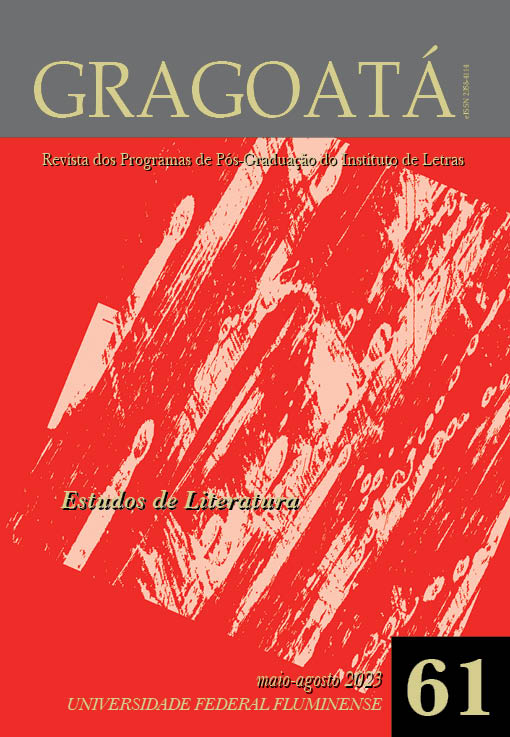Concerto de Feras: a Vocalização do Devir-Animal em A Confissão da Leoa (2012), de Mia Couto, e O Som do Rugido da Onça (2021), de Micheliny Verunschk
Palavras-chave:
Literatura Comparada, A confissão da leoa, O som do rugido da onça, Animalidade, Devir-animalResumo
Com base no conceito de devir-animal, elaborado por Gilles Deleuze e Félix Guattari (1997), buscamos, neste trabalho, desenvolver um exercício de crítica comparatista entre os romances contemporâneos A confissão da leoa (2012), do moçambicano Mia Couto, e O som do rugido da onça (2021), da escritora brasileira Micheliny Verunschk. Em comum, os dois textos empreendem a recuperação de temáticas e procedimentos mobilizados no conto “Meu tio o Iauaretê” (2001 [1961]), de João Guimarães Rosa. Semelhante ao contágio vivenciado pelo onceiro da narrativa roseana, que de matador de onças passa a defensor desses felinos,
irmanando-se a esses animais, as duas narrativas em análise representam um movimento em
direção a subjetividades não humanas experienciadas por suas personagens. Historicamente, o pensamento ocidental desenvolveu diversos mecanismos ideológicos para efetuar a separação entre o Homo sapiens e os outros viventes animais. A isso, atrela-se o processo de desumanização dos sujeitos colonizados, uma das ferramentas manipuladas pelo projeto imperialista. Como contraponto a essas perspectivas, Mia Couto e Micheliny Verunschk incorporam, em seus textos, discursos que possibilitam a abertura para outras perspectivas sobre a vida. Nos romances, verifica-se o tensionamento das fronteiras interespecíficas, uma vez que, por vias ficcionais, se efetiva o cruzamento dos limites entre o humano e o não humano. Para Mariamar e Iñe-e, protagonistas dos romances, o encontro com as figuras da onça e da leoa, grandes predadores dos dois continentes que ambientam as narrativas, possibilita o acesso a uma animalidade silenciada pelos dispositivos de opressão.
Downloads
Downloads
Publicado
Edição
Seção
Licença
Copyright (c) 2023 Gragoatá

Este trabalho está licenciado sob uma licença Creative Commons Attribution 4.0 International License.
AUTORIZAÇÃO
Autores que publicam em Gragoatá concordam com os seguintes termos:
Os autores mantêm os direitos e cedem à revista o direito à primeira publicação, simultaneamente submetido a uma licença Creative Commons Atribuição 4.0 Internacional (CC BY 4.0), que permite o compartilhamento por terceiros com a devida menção ao autor e à primeira publicação pela Gragoatá.
Os autores podem entrar em acordos contratuais adicionais e separados para a distribuição não exclusiva da versão publicada da obra (por exemplo, postá-la em um repositório institucional ou publicá-la em um livro), com o reconhecimento de sua publicação inicial na Gragoatá.
A Gragoatá utiliza uma Licença Creative Commons - Atribuição CC BY 4.0 Internacional.











